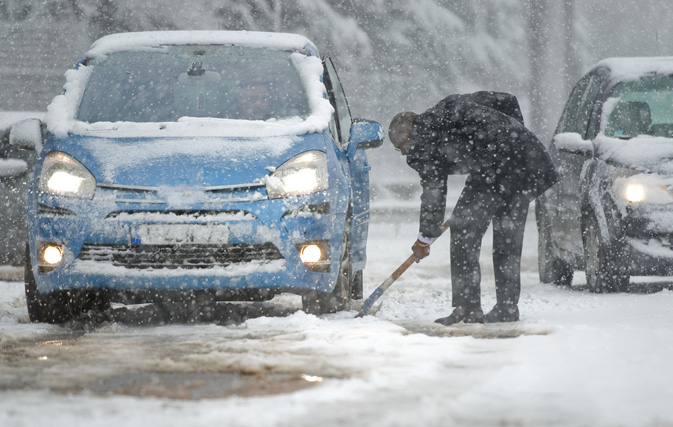DALLAS — CEO Oscar Munoz says United Airlines is busy preparing for bad weather this winter in Chicago, and he’s got an unlikely source for that insight – Farmer’s Almanac.
In an interview with the public radio program “Marketplace,” Munoz said that airlines can’t control the weather but shouldn’t use it as an excuse. They must plan for surprises, he said.
“A very quick example,” Munoz told the interviewer. “Farmers’ Almanac is calling for a very nasty winter, particularly in Chicago, one of our main hubs. So as we speak, our operating team is hard at work as to how are we going to accommodate passengers.”
A spokesman said Wednesday that United doesn’t consult Farmers’ Almanac, but Munoz’s comment drew ridicule from those who regard the publication as less than scientific.
“I’m not flying United unless my astrologist tells me it’s OK,” said John Knox, an aviation-meteorology expert at the University of Georgia.
Farmers’ Almanac, which has been around since 1818, predicts that after a mild season last year, “winter is back!” It says that exceptionally cold “if not downright frigid weather” will dominate parts of the Great Lakes and Midwest.
A similar-sounding publication dating to 1792, The Old Farmer’s Almanac, predicts that winter in Illinois will be warmer than normal but snowfall will be above average.
Jan Null, a meteorologist for Golden Gate Weather Services, found that The Old Farmer’s Almanac forecast for the Chicago area last winter was wrong – instead of cold, dry weather, the region was warmer and wetter than usual.
Munoz didn’t say explicitly that he relied on either publication, and a United Airlines representative said the CEO’s words were being taken out of context.
“Oscar spoke anecdotally when he referred to the Farmers’ Almanac, and that was in regards to the high likelihood of severe winter weather in the Chicago area this upcoming season,” spokesman Charles Hobart said.
Hobart _ who said he wasn’t sure which almanac Munoz meant; both offer weather predictions, astronomical information and articles on topics such as farming, fashion and food – added that nobody at the airline relies on either one for planning purposes.
“We take into account the expertise of our aviation meteorologists here on site; that’s what we use,” Hobart said. At any time, United has up to three or four contract meteorologists on duty at its main operations centre, he said.

